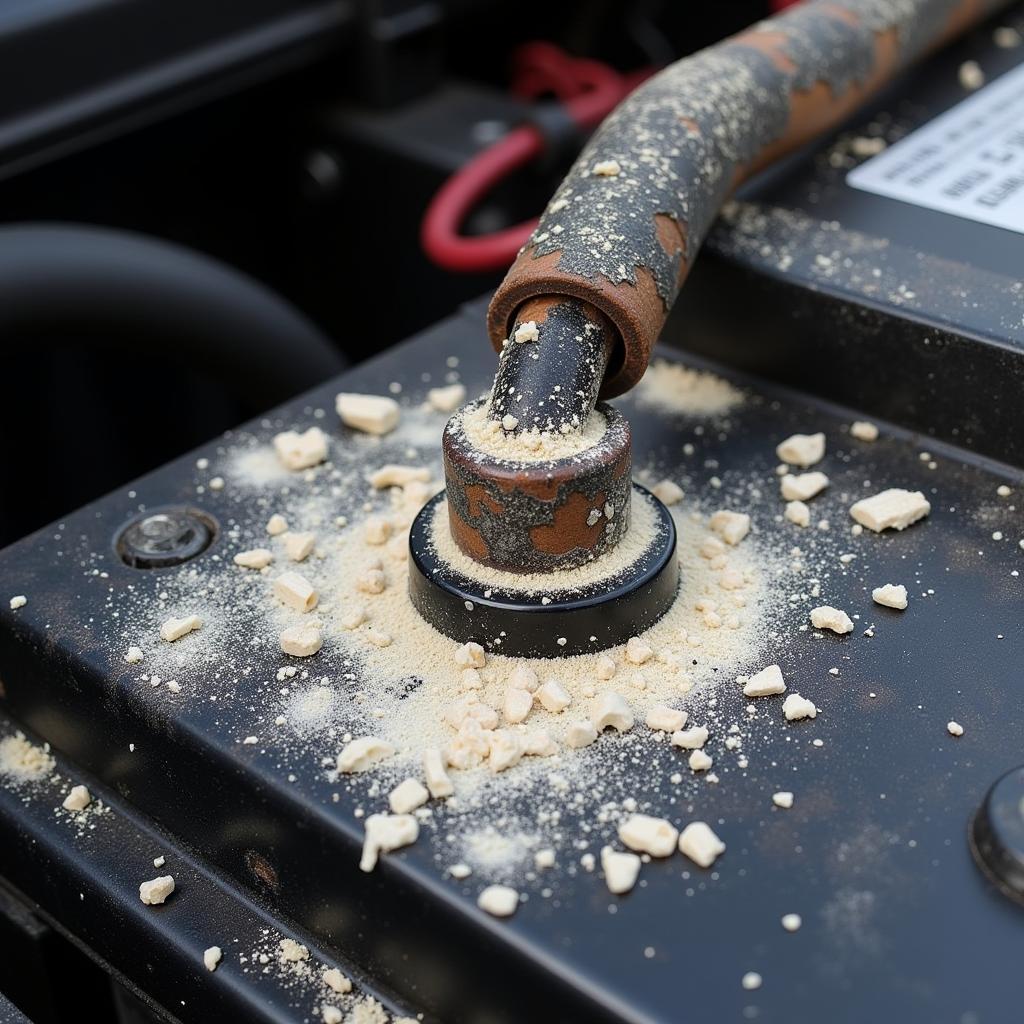If you’re seeing a brake light warning on your Lincoln Navigator’s dashboard, it’s crucial to address the issue promptly. This warning can indicate various problems, from minor inconveniences to serious safety hazards. This article will guide you through understanding the “Lincoln Navigator brake lights on dash warning,” its potential causes, troubleshooting steps, and solutions.
Understanding the Brake Light Warning
The brake light warning on your Lincoln Navigator’s dashboard is a crucial safety feature. It illuminates when the vehicle’s onboard computer detects a problem within the braking system. While it could be something as simple as a burnt-out bulb, it could also signify more complex issues like a malfunctioning brake sensor or low brake fluid. Ignoring this warning could compromise your safety and the safety of other drivers. Don’t delay in investigating and resolving the problem.
Common Causes of the Lincoln Navigator Brake Lights Warning
Several factors can trigger the brake light warning on your Navigator. Here are some of the most common culprits:
- Burnt-out Brake Light Bulbs: This is the most frequent and easiest fix. Regularly check your brake lights and replace any burnt-out bulbs immediately.
- Faulty Brake Light Switch: This switch, located under the brake pedal, can wear out or malfunction, preventing the brake lights from activating.
- Low Brake Fluid: Low brake fluid can indicate a leak in the brake lines, a worn-out master cylinder, or worn brake pads. This requires immediate attention.
- Worn Brake Pads: While some Navigators have specific brake pad wear sensors, the brake light warning can sometimes illuminate if the pads are excessively worn, affecting the brake fluid level.
- Blown Fuse: A blown fuse in the brake light circuit can also trigger the warning light. Check your owner’s manual for the correct fuse location.
- Wiring Issues: Damaged or corroded wiring in the brake light circuit can cause intermittent or complete failure of the brake lights.
- ABS Module Problems: Although less common, issues with the Anti-lock Braking System (ABS) module can sometimes activate the brake light warning.
Troubleshooting the Brake Light Warning
Before rushing to a mechanic, you can perform some basic troubleshooting steps:
- Check the Brake Lights: Ask someone to press the brake pedal while you observe the lights. If they don’t illuminate, proceed to the next step.
- Inspect the Bulbs: Check all brake light bulbs for signs of burning or damage. Replace any faulty bulbs.
- Check the Brake Fluid Level: Locate the brake fluid reservoir and check the fluid level. If it’s low, add brake fluid to the recommended level. However, consistently low brake fluid indicates a leak and requires professional attention.
- Check the Fuses: Refer to your owner’s manual to locate the brake light fuse. Inspect the fuse and replace it if blown.
When to Seek Professional Help
If the basic troubleshooting steps don’t resolve the issue, it’s time to consult a qualified mechanic. Issues like a faulty brake light switch, ABS module problems, or brake line leaks require specialized tools and expertise.
“Ignoring a brake light warning can lead to dangerous driving situations,” says automotive expert, David Miller, ASE Certified Master Technician. “It’s always better to err on the side of caution and have a professional diagnose the problem.”
Remote Diagnostics and Software Solutions
Modern vehicles like the Lincoln Navigator often benefit from remote diagnostics and software updates. Specialized service providers can access your vehicle’s computer remotely to pinpoint the issue and even install software updates to address specific problems. This can be a convenient and efficient solution for certain types of brake light warning issues.
Conclusion
The “Lincoln Navigator brake lights on dash warning” is a serious signal that shouldn’t be ignored. By understanding the potential causes and performing basic troubleshooting, you can often identify and resolve simple issues. However, more complex problems require the expertise of a qualified mechanic. Addressing the issue promptly ensures your safety and the proper functioning of your Lincoln Navigator’s braking system. Remember, a functioning brake system is crucial for safe driving.
“Regular maintenance, including checking your brake lights and fluid levels, can prevent many brake system issues,” adds Miller. “Preventive care is always the best approach.”
FAQ
- What does the brake light warning light on my Lincoln Navigator mean? It signifies a problem within the braking system, ranging from a burnt-out bulb to a more serious issue.
- Can I drive my Lincoln Navigator with the brake light warning on? While you might be able to drive, it’s highly unsafe. Have the issue diagnosed and repaired immediately.
- How do I check my Lincoln Navigator’s brake lights? Ask someone to press the brake pedal while you observe the lights from behind the vehicle.
- Where can I find the brake light fuse in my Lincoln Navigator? Refer to your owner’s manual for the precise location of the fuse box and the brake light fuse.
- What should I do if I’ve replaced the bulbs and the brake light warning is still on? Seek professional assistance from a qualified mechanic.
- Can remote diagnostics fix my Lincoln Navigator’s brake light warning? It depends on the specific issue. Some software-related problems can be resolved remotely.
- How can I prevent future brake light warnings on my Lincoln Navigator? Regular maintenance, including checking brake fluid levels and bulb condition, is key to preventing issues.



